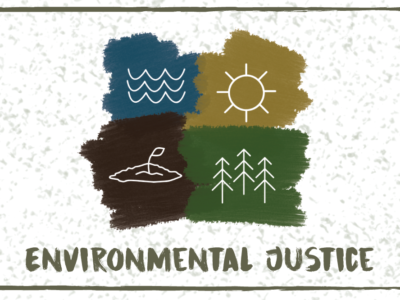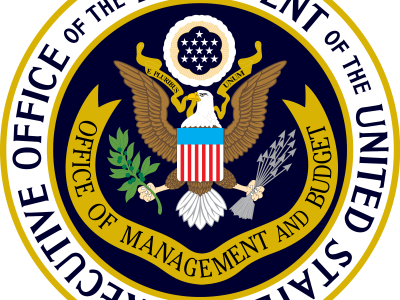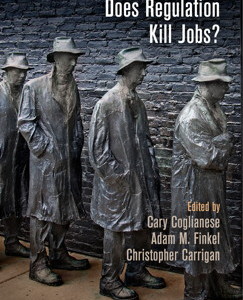regulation
Can We Use Regulation to Reduce Inequality?
Contrary to some, I think the answer is yes. And here’s how we can do it.
Inequality is a burning issue in our society but plays only a limited role in the design of regulations. In an article that came out a week ago, I try to work through questions about how economic and racial inequality can be integrated into rule-making. In terms of economic inequality, the current system already has …
Continue reading “Can We Use Regulation to Reduce Inequality?”
CONTINUE READINGCan we make a map for wastewater innovation?
…or even a guidebook?
During one phase of my misspent youth, I travelled by bicycle in search of adventure and insight. (Hang with me, this relates to environmental management, and I’ll get to that soon.) On one tour, I started in Vietnam, ending up in Pakistan a couple years later, having made some detours and added other means of …
Continue reading “Can we make a map for wastewater innovation?”
CONTINUE READINGA decade of unraveling the effects of regulation on water innovation
By Michael Kiparsky, with Dave Smith, Nell Green Nylen, Luke Sherman, Alida Cantor, Anita Milman, Felicia Marcus, David Sedlak, Bernhard Truffer, Christian Binz, Sasha Harris-Lovett, Jeff Lape, Justin Mattingly, Dave Owen, Lars Tummers, Buzz Thompson
In a recent post, my colleagues and I reported on our most recent research output in a long series of projects examining the effect of regulation on water innovation. The post describes a new framework for understanding and, ultimately, improving relationships between regulators and wastewater utility managers who are seeking to implement novel technical solutions, …
Continue reading “A decade of unraveling the effects of regulation on water innovation “
CONTINUE READINGVacancy
A Key White House regulatory office has remained unfilled for a record time.
The Biden Administration is looking to make big regulatory changes, not least regarding climate change. Yet the White House office overseeing regulations is vacant. The obscurely named Office of Regulatory Affairs and Information (OIRA) has to sign off on all significant regulations. Even the dilatory Donald Trump had nominated a permanent administrator by July of …
CONTINUE READINGLabor and the Environment
Let’s talk about jobs and environmental protection.
Labor Day is a good time to talk about an important topic: the impact of environmental protection on jobs. This is a clearly a fraught issue. In support of his deregulation campaign, President Trump promised to “cancel every needless job-killing regulation and put a moratorium on new regulations until our economy gets back on its …
Continue reading “Labor and the Environment”
CONTINUE READINGOn the future of climate policy
A response to William Nordhaus’s comments about how essential carbon taxes are to addressing climate change
William Nordhaus recently (and deservedly) won the Nobel Prize for Economics for his work on the economic implications of climate change and policies to respond to climate change. In the press coverage after the award, some comments were attributed to Nordhaus that I think are important to consider in more depth – in part because …
Continue reading “On the future of climate policy”
CONTINUE READINGWhen EPA Pays Lip Service to Public Comment, the Environmental Community Steps Up
Environment and public health advocates voice their concerns about EPA’s regulatory reform efforts under EO 13777
The public health and environmental communities took a small victory on an EPA conference call yesterday. In a three-hour public comment call that could have been dominated by industry seeking regulatory rollbacks, about half of the speakers supported strengthening environmental and public health protections. And many of them took EPA to task for such a …
Continue reading “When EPA Pays Lip Service to Public Comment, the Environmental Community Steps Up”
CONTINUE READINGThe Dangers of the New Executive Order on “Reducing Regulation”
The Order is Designed to Prevent Federal Agencies from Protecting Health, Safety, and the Environment
Dan Farber just posted an insightful, brief analysis of the executive order “Reducing Regulation and Controlling Regulatory Costs” that was issued this morning. As Dan notes, the order is absurd and arbitrary – but more than that, it’s extraordinary in its potential for doing harm to our country and its residents. It is meant to kneecap …
Continue reading “The Dangers of the New Executive Order on “Reducing Regulation””
CONTINUE READINGMichigan v. EPA: Policymaking in the Guise of Statutory Interpretation
In Michigan v. EPA, the majority followed its own policy views, not those in the statute.
The majority opinion by Justice Scalia has gotten most of the attention. Most notably, he wrote that “[o]ne would not say that it is even rational, never mind “appropriate”, to impose billions of dollars in economic costs for a few dollars in health or environmental benefits.” Indeed, “[n]o regulation is ‘appropriate’ if it does significantly …
Continue reading “Michigan v. EPA: Policymaking in the Guise of Statutory Interpretation”
CONTINUE READINGJobs & Regs
The empirical evidence suggests that job loss from regulation is small.
It seems to be easy to make arguments one way or another about the effect of regulation on jobs. What does the evidence say? Those seeking an answer would do well to look at a recent book on the subject by Coglianese, Finkel, and Carrigan. Although the book is broader in scope, it provides a careful …
Continue reading “Jobs & Regs”
CONTINUE READING










